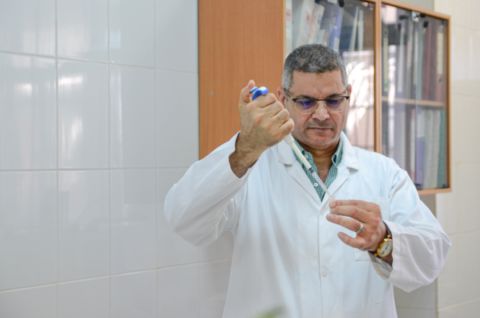Lactic-acid bacteria or lactic bacteria are widely used today to make cottage cheese, yoghurts and all kinds of cheese. The effect from these bacteria on milk should result in obtaining not only tasty and safe products, but also nutritious ones, which help repair your health. That is why such bacteria serve as probiotics. And the best scenario if these do not disappear in the acid medium of gastric juices but reach the intestinal tract and perform their health-recuperating functions there.
Professor Sobhi Al-Suhaimi from the SUSU Institute of Sport, Tourism and Service jointly with his colleagues from Egypt and Saudi Arabia has conducted a fundamental research on the bacteria from the digestive apparatus of bees in order to assess how effective those are as probiotics. They published the research results in the international journal Annals of Agricultural Sciences included in Q1 of Scopus. Significant part of the laboratory experiments was held in Alexandria, Egypt.
Scientists study several bacteria strains, including Lactiplantibacillus plantarum, Lactiplantibacillus pentosus, Latilactobacillus sakei, and other microorganisms living in the stomach and middle part of the intestine of honey bees.
So, why namely the bee lactic bacteria? The researchers aimed to demonstrate that these are better than traditional lactic bacteria in terms of resisting the acid medium and bile substances, reducing bilification, generating exopolysaccharides, showing hemolytic efficiency, improving fermentation parameters, and reducing PH factor in the digestive tract.
The bacteria strains observed in the course of the experiment could survive in the human gastric acid at the temperature of 37 degree Celsius for two hours: from 66.5% to 80% to an accuracy of 3%.
All types of the bacteria were tested in the production of beverages based on milk. Each strain demonstrated its stable growth in sterilized milk and reached high level after 24 days of fermentation, and this level would not significantly drop for 21 days more.
Thus, the obtained product has a relatively long shelf life and preserves its theraputical-probiotic properties within 21 days, which is an acceptable time frame for yoghurts.
To launch the product in the market, beverages with the use of bee lactic bacteria will need to undergo additional theraputical testing.




